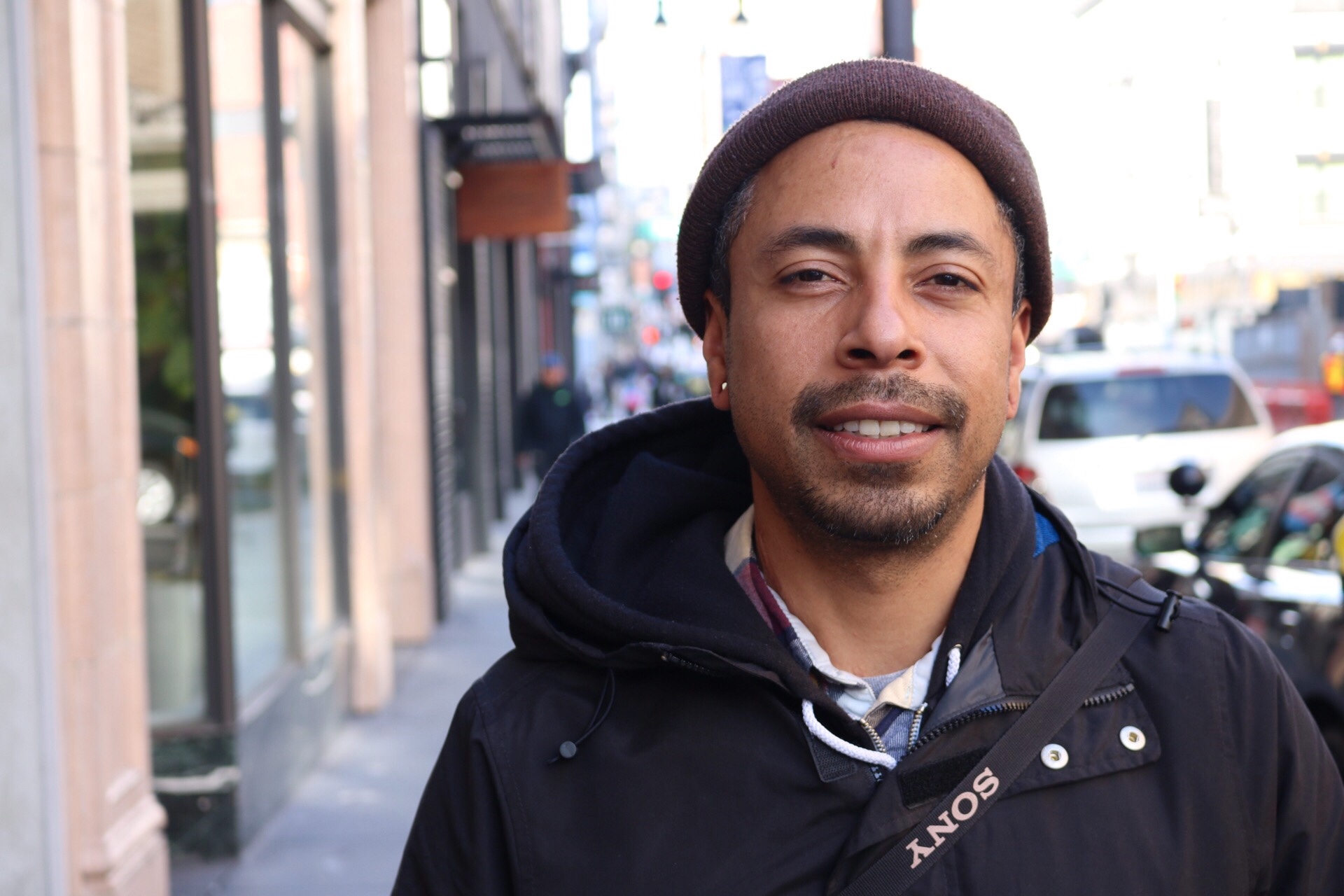Reflections on the Complexity and Compassion of Case Management
Demarco McCall describes his occupation and its greatest challenge in the same breath: “a Housing Case Manager in a city without housing.” The reality is that case managers at GLIDE must meet the diverse and complex needs of the most vulnerable members of San Francisco’s unhoused community even in the midst of a seemingly intractable housing crisis. If that seems like a thankless task, it nevertheless remains a critical one, which daily makes a profound difference in the health and wellbeing of many individuals and families across this city. And, as you’ll read below, it takes unusual reserves of heart, strength and creativity.
Demarco’s answer to our question–”What does a case manager do?”–is the first in a series examining and honoring the complexity and compassion of the case manager’s job– a profession that is often mentioned but not necessarily well understood in its details or scope, especially here on the front lines of GLIDE’s essential work in the community.
Case management in this city is really hard and totally overwhelming. I am a Housing Case Manager but there is no housing. And let’s be honest, GLIDE is rough. I am exposed to so much trauma just walking to and from work–everything I see, everything that comes into my eyes, all the pain I bear witness to. When I first started working here, that was all that was on my mind. I couldn’t stop thinking about all the people I was working with. I’d go home from work still trying to figure out what I can do for this person and that person. I missed out on so much sleep.
I applied to work at GLIDE because I love the values. It’s what makes this organization unique, our ability to meet everybody and anybody where they are at and show them unconditional love. If you visit other organizations, you’ll notice that the building may be neater. But we allow anybody and everybody from the community to come in and feel free to use our bathrooms and feel free to roam our halls because we have an open-door policy.
Even with difficult participants we don’t use a hands-on policy. Instead, we say you can leave the building for one week and come back for a “restorative chat.” That is, a mutually respectful conversation re-establishing the basis for a cooperative relationship that can truly serve the client without taking away from or jeopardizing the help being offered to others. In the meantime, they can still access all our critical services. We will bring them bagged lunches and clean needles and any other supplies they may need.
Some people have a cap on how many participants they case manage, but I don’t. It’s hard but how do you say no? I just took on five new clients today for rental assistance. That puts my caseload at a total of around 30.
The needs of each client vary, but it is always about housing. Filling out housing applications, doing housing searches, knocking on the doors of landlords, signing people up for payee services, filling out rental applications and helping folks with their credit history.
Often clients don’t have the necessary documents to complete housing applications so I help them navigate the system to access social security cards and birth certificates. I am always making copies of all their important documents and keeping all their files organized and up-to-date.
Many of my clients don’t have cell phones, so I am calling property managers, returning calls about potential housing leads, and making appointments at the DMV.
I help folks with their interviewing skills by practicing the questions they might be asked, so that they feel less anxious and more prepared.
Everybody, from all walks of life, needs a case manager. Some people want a case manager because they have been in social services their whole life. Many grew up in juvenile hall or foster care. Now they are 55 and they feel the need for a case manager.
I spend a significant amount of time showing people how to set up an email account and how to use Google Docs to keep track of their rental applications and housing searches. If they are on probation, I collaborate with their probation officer to make sure we are utilizing all the resources available.
A lot of people in this city also have literacy challenges, which they don’t tell you about. I have never had a client tell me, “Hey, I can’t read or write.” Instead they will say, “I need help filling out applications,” or, “I need help looking for housing.” They are worried about saying they can’t read or write because they are afraid of being taken advantage of. They feel scared and vulnerable. So, they seek out a case manager.
Unfortunately, society doesn’t recognize the importance of this critical work. Civil servants, social workers, case managers, early education teachers and care givers are not given the respect they deserve. My job title is Housing Case Manager but I also see my role at GLIDE as smiling at everyone, to share a friendly hello with each person I pass, to cultivate hope in the community by letting people know that it is not as bad as it seems. I see myself in everybody. In the good and the bad, the rich and the poor. That’s me. And that’s why I am a Case Manager at GLIDE. ♥

By Erin Gaede
